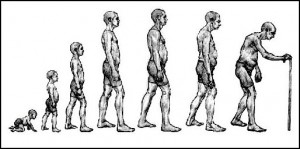Jesus says “I am the vine, you are the branches. The one who remains connected to me, that is the one who will bear much fruit” (John 15:4-5). What does it mean to “remain connected” to Christ? It makes me think of the sap the runs from the vine  into the branches. It reminds me of the Holy Spirit. When we abide or remain connected to Christ the Holy Spirit flows from Him to us producing his fruit. There are many different kinds of fruit I’d like to produce in my life, but first and foremost are the fruits of the Holy Spirit. You know them well: Love, joy, peace, patience, kindness, goodness, faithfulness, gentleness and self control. I’ve often found I cannot force this fruit to grow. The harder I try the less I see. I get frustrated and lose my patience. I become self centered in my focus and lose my love and joy. I become cranky and the kindness & goodness is something I cannot even see from where I am. Gentleness? Don’t even talk about it!
into the branches. It reminds me of the Holy Spirit. When we abide or remain connected to Christ the Holy Spirit flows from Him to us producing his fruit. There are many different kinds of fruit I’d like to produce in my life, but first and foremost are the fruits of the Holy Spirit. You know them well: Love, joy, peace, patience, kindness, goodness, faithfulness, gentleness and self control. I’ve often found I cannot force this fruit to grow. The harder I try the less I see. I get frustrated and lose my patience. I become self centered in my focus and lose my love and joy. I become cranky and the kindness & goodness is something I cannot even see from where I am. Gentleness? Don’t even talk about it!
I once read about when Lawrence of Arabia was in Paris after World War I with some of his Arab friends. Rasnake tells this story well: Lawrence “showed them the sights of the city: the Arc de Triumphe, the Louvre, Napoleon’s tomb, the Champs Elysées, but none of these things impressed them. The thing that really interested them the most was the faucet in the bathtub of the hotel room. They spent much time turning it on and off. They found it amazing that one could turn a handle and get all the water he wanted. Later, when they were ready to leave Paris and return to the East, Lawrence found them in the bathroom with wrenches trying to disconnect the faucet. “You see,” they said, “it is very dry in Arabia. What we need are faucets. If we have them, we will have all the water we want.” Lawrence had to explain that the effectiveness of the faucets did not lie in themselves but in the immense reservoirs of water to which they were attached.”
Jesus goes on to say in the next verse “disconnected from me, you can do nothing.” Jesus also said “I am the living water.” You and I are just like a faucet by itself. No fruit comes forth from me, until I’m connected and abiding in Christ. He is the source of nourishment through which we can grow the fruits of the spirit.
Chuck
“If you ask, He will give you the living water.” (John 4:10)







